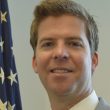Remember who got the party started
Despite my modest ability, I always have loved to play baseball, in all of its myriad forms. (My favorite was kickball — I was blessed, or cursed, with size 13s.) In Little League and in high school, I almost always batted first or second. There were good reasons for this. First, I wasn’t a power hitter. I could hit the ball hard, but I lacked the type of swing that would let me jack a ball over an outfielder’s head. Second, I was fast and a smart base runner, so when I got on base I was disruptive. Finally, I had a good eye and didn’t mind taking one for the team — I stood right on top of the plate, daring the pitcher to throw inside. Heaven help those who did, because if they plunked me, they knew they had just given up a triple.
The first inning always is toughest for the leadoff batter. He has no way of knowing what to expect from that night’s pitcher, even if he has faced that hurler before, because he’s the first to step into the box. Accordingly, the leadoff batter always is grilled by teammates upon returning to the dugout: Is the pitcher fast? How fast? Does he have a curve? Is he wild? And so on. The following batters have the ever-so-slight advantage borne of prior knowledge. And even the slightest advantage can mean the difference between reaching base and grabbing some bench.
I thought about this in the context of the FCC’s order last week regarding the allocation of 700 MHz spectrum that will become available when broadcasters vacate the band in 2009. The order establishes a framework for the establishment of a public/private partnership that will build a nationwide wireless broadband network for first responders using 22 MHz of spectrum in the band. This portion of the order closely resembles the plan first proposed by Frontline Wireless back in March.
There would be no framework, likely no Frontline Wireless and certainly no hope for a nationwide wireless broadband network for first responders if Cyren Call’s Morgan O’Brien hadn’t stepped up to the plate first, in May 2006.
O’Brien is an interesting study. Some revere him as a brilliant tactician for the manner in which he cobbled together the company that ultimately became Nextel Communications. Others vilify him — particularly in the public-safety sector — precisely because of the way Nextel was built, which contributed to the interference that still plagues first responders and which necessitated a reconfiguration of the 800 MHz band that will cost in the billions of dollars when it finally is completed.
I see O’Brien as a visionary to whom every first responder owes a debt of thanks. It was O’Brien who got the debate started. The notion of a nationwide wireless broadband network for first responders was unthinkable — until O’Brien stepped to the podium at IWCE 2006 and planted the seed that not only was it thinkable, it was feasible. Also, just as ensuing batters can gain an edge from picking the brain of the leadoff batter, Frontline Wireless benefited greatly from the ability to analyze — over many months — Cyren Call’s plan for building the nationwide network, knowledge it used to develop the plan that in large measure became the heart of the FCC’s 700 MHz order.
The still-to-be-named public-safety licensee that will work with the commercial entity to build the network will need strategic guidance and management services. Already the jockeying has begun for that coveted role, and there certainly will be a healthy list of candidates. One presumes Frontline Wireless and Cyren Call will make the short list. BearingPoint also is a possibility. The company is part of the Transition Administrator team that is guiding the 800 MHz rebanding process, and it has been stockpiling talent from the public-safety community of late, including Steve Devine, the former frequency coordinator for the Missouri State Highway Patrol and Ron Haraseth, former director of automated frequency coordination for APCO.
There is no room for sentiment in business, so Cyren Call should be given no special consideration simply because O’Brien got the ball rolling. The public-safety licensee must choose the consulting firm that is most capable of providing the services it will need.
But I can’t help rooting for O’Brien and Cyren Call.
E-mail me at
[email protected]
















